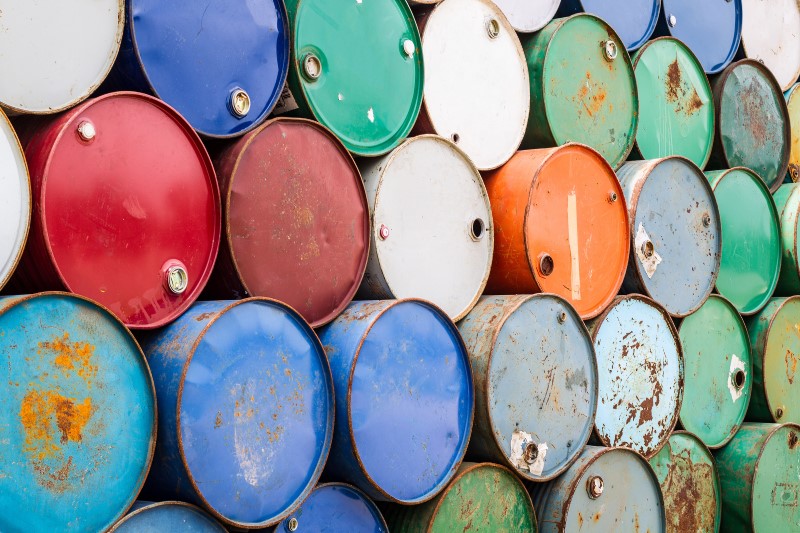Oil Reverses Gains After U.S. Posts Large Crude Build
(Reuters) — Oil prices reversed early gains on Thursday in a volatile session after a large build in U.S. crude stockpiles outweighed expectations that U.S. interest rates had peaked.
Brent futures settled up 18 cents to $86.00 per barrel. U.S. West Texas Intermediate crude fell 58 cents to $82.91 a barrel. Prices had risen more than $1 a barrel earlier in the session.
Prices pared gains after U.S. government data showed U.S. crude inventories rose by 10.2 million barrels in the last week to 424.2 million barrels, much higher than analyst expectations for a 500,000-barrel rise.
Lower refining utilization rates and higher net imports added to the crude build, said Bob Yawger, director of energy futures at Mizuho.
"That was ultimately a very bearish EIA report," Yawger said. "The assumption is you're going to get storage builds here because refineries have been shut down (during maintenance season)."
U.S. crude output also hit a record 13.2 million barrels per day in the week, the data showed.
Supporting crude futures earlier, world shares rose and the dollar and bond market borrowing costs held steady ahead of U.S. inflation data and European Central Bank meeting minutes that will add to the debate on where interest rates are heading.
Data on Thursday showed that U.S. inflation was slowing, further supporting expectations that the Fed will freeze interest rate hikes next month.
Lower U.S. bond yields are stoking risk appetite, which in turn is supporting equities and oil, UBS analyst Giovanni Staunovo said.
"Both the Saudi energy minister Prince Abdulaziz and Russia's deputy prime minister Novak reiterating their ongoing collaboration to balance oil markets are helping," he added.
Saudi Energy Minister Prince Abdulaziz bin Salman said in a Russian TV interview that it was necessary to be "proactive" on bringing stability to the oil market, which had recently been hit by concerns that the Israel-Hamas war could disrupt supplies from the Middle East.
Russian Deputy Prime Minister Alexander Novak also reassured markets, saying the current oil price factored in the Middle East conflict and showed that the risk from it was not high.
Novak also said on Thursday that Russia will further ease its fuel exports ban if necessary. Last week, it lifted restrictions on pipeline diesel supplies.
Meanwhile, the IEA lowered its oil demand growth forecast for 2024, suggesting harsher global economic conditions and progress on energy efficiency will weigh on consumption.
The agency now sees 2024 demand growth at 880,000 barrels per day (bpd), compared with its previous forecast of 1 million bpd.
However, it raised its 2023 demand forecast to 2.3 million bpd from a forecast of 2.2 million.
In contrast, the Organization of the Petroleum Exporting Countries stuck to its forecast for relatively strong demand growth next year, expecting it to reach 2.25 million bpd.
Russian crude oil and product exports rose in September by as much as 460,000 barrels per day, the IEA estimated on Thursday, despite Western sanctions and Moscow's pledge to cut output in tandem with OPEC.
Related News
Related News

- Keystone Oil Pipeline Resumes Operations After Temporary Shutdown
- Freeport LNG Plant Runs Near Zero Consumption for Fifth Day
- Biden Administration Buys Oil for Emergency Reserve Above Target Price
- Mexico Seizes Air Liquide's Hydrogen Plant at Pemex Refinery
- Enbridge to Invest $500 Million in Pipeline Assets, Including Expansion of 850-Mile Gray Oak Pipeline





Comments